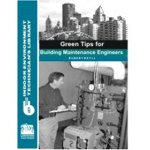Over the past decade, I have spent many hours with engineers, specifically with mechanical engineers who deal with HVAC systems. From meetings with consulting firms to ASHRAE and ASHE conferences, I have noticed certain personality traits that seem to be more common in this group of my colleagues, as compared to other physicians or clinicians. I write about my hypotheses with some trepidation because you readers are the subject and the experts! Nevertheless, I will forge ahead, keeping in mind that all generalizations have exceptions.
The characteristics I have noticed, and admired, in HVAC engineers are the following. They (you) like practical jokes, seem unconstrained by self-consciousness (geeky is good), and have great manners. You are: very smart — yet humble, lots of fun to spend time with, somewhat shy, thoughtful, hard-working and extremely dedicated to your profession.
To determine if my observations are reflected by job satisfaction surveys or health data (I love data) on mortality, substance abuse, suicide, divorce, etc., I did some research on these trends by profession.
The following is what I have uncovered. According to questionnaires and interviews with over 1,000 mechanical engineers, you are high on the job satisfaction scale because you can improve and influence real situations. Most of you (86%) describe your career as better than you expected despite the fact that you could possibly earn more in other industries.
Looking at U.S. census data tables, after controlling for age, race, and geography, the typical HVAC engineer is not likely to use illicit drugs regularly (bottom third percentile), is average for alcohol consumption, and is fourth from the bottom of the list of professions likely to commit suicide. The only three professions with lower suicide rates are religious leaders, teachers and physicians, while 11 professions have higher rates.
In addition to these positive standings, according to an American community survey on divorce in 2015, the marriages of mechanical engineers have a three to one chance of lasting, which is presumed to be a good thing. Actuaries, dental hygienists, and animal breeders have an even better chance of stable marriages, while bartenders, dancers, and gaming managers have the lowest probability of avoiding divorce.
What work factors or personality traits might lead to these positive statistics? Do you have more connectedness to colleagues, family, friends, and your community? If you are struggling with substance abuse or depression, are you more likely to reach out for assistance because you are not excessively constrained by stigma associated with seeking help? Or, perhaps, there is a secret sauce served at ASHRAE meetings that enhances professional and personal wellbeing.
What can the rest of us learn from you about happy work engagement? At this point, I turn to you, because I have also seen that HVAC engineers are very willing to express their opinions. Please give us your advice so that we, too, can try to embrace your great attitudes.










